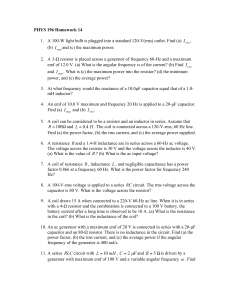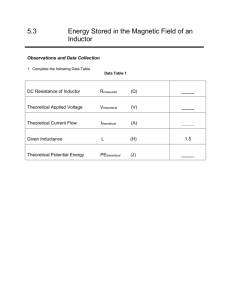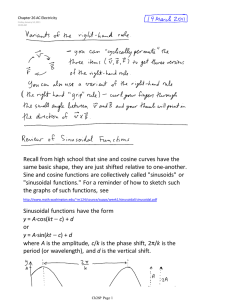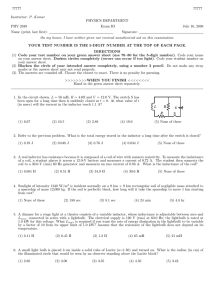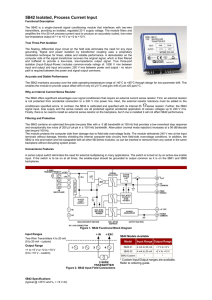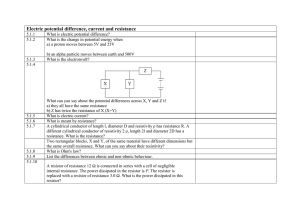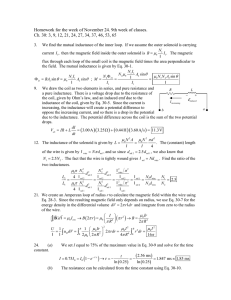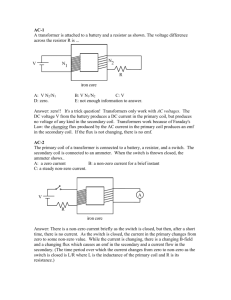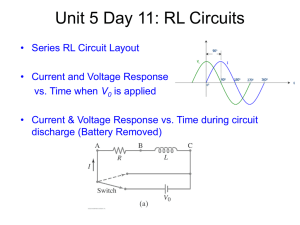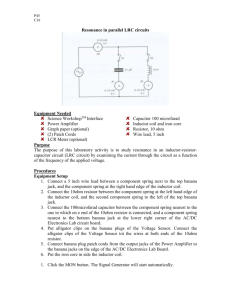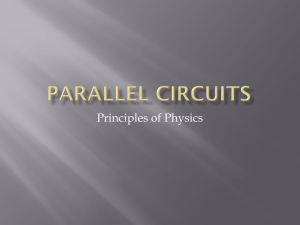PHYS 196 Homework 14
advertisement
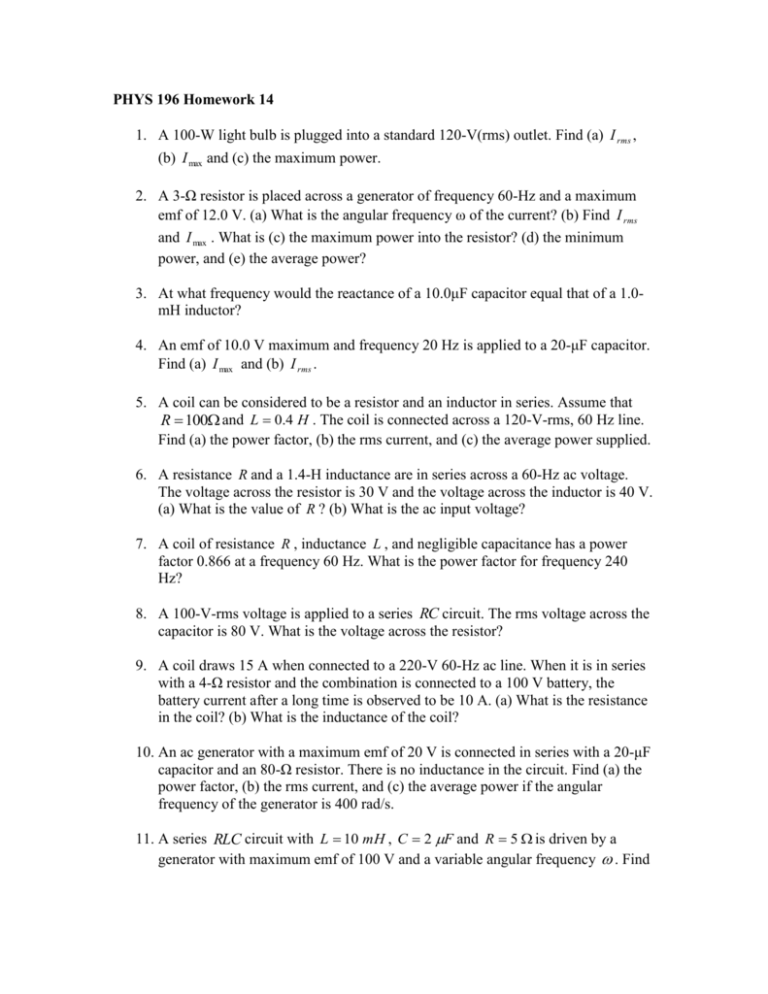
PHYS 196 Homework 14 1. A 100-W light bulb is plugged into a standard 120-V(rms) outlet. Find (a) I rms , (b) I max and (c) the maximum power. 2. A 3-Ω resistor is placed across a generator of frequency 60-Hz and a maximum emf of 12.0 V. (a) What is the angular frequency ω of the current? (b) Find I rms and I max . What is (c) the maximum power into the resistor? (d) the minimum power, and (e) the average power? 3. At what frequency would the reactance of a 10.0μF capacitor equal that of a 1.0mH inductor? 4. An emf of 10.0 V maximum and frequency 20 Hz is applied to a 20-μF capacitor. Find (a) I max and (b) I rms . 5. A coil can be considered to be a resistor and an inductor in series. Assume that R 100 and L 0.4 H . The coil is connected across a 120-V-rms, 60 Hz line. Find (a) the power factor, (b) the rms current, and (c) the average power supplied. 6. A resistance R and a 1.4-H inductance are in series across a 60-Hz ac voltage. The voltage across the resistor is 30 V and the voltage across the inductor is 40 V. (a) What is the value of R ? (b) What is the ac input voltage? 7. A coil of resistance R , inductance L , and negligible capacitance has a power factor 0.866 at a frequency 60 Hz. What is the power factor for frequency 240 Hz? 8. A 100-V-rms voltage is applied to a series RC circuit. The rms voltage across the capacitor is 80 V. What is the voltage across the resistor? 9. A coil draws 15 A when connected to a 220-V 60-Hz ac line. When it is in series with a 4-Ω resistor and the combination is connected to a 100 V battery, the battery current after a long time is observed to be 10 A. (a) What is the resistance in the coil? (b) What is the inductance of the coil? 10. An ac generator with a maximum emf of 20 V is connected in series with a 20-μF capacitor and an 80-Ω resistor. There is no inductance in the circuit. Find (a) the power factor, (b) the rms current, and (c) the average power if the angular frequency of the generator is 400 rad/s. 11. A series RLC circuit with L 10 mH , C 2 F and R 5 is driven by a generator with maximum emf of 100 V and a variable angular frequency . Find (a) the resonant frequency 0 , (b) I rms at resonance, and (c) the Q factor. When 8000 rad / s , find (d) X C and X L , (e) Z and I rms and (f) the power factor. 12. A two conductor transmission line simultaneously carries two voltage signals, so the potential difference between the two conductors is given by V V1 V2 where V1 (10.0 V ) cos 1t and V2 (10.0 V ) cos 2 t where 1 100 rad / s and 2 10000 rad / s . A 1.00-H inductor and a 1.00kΩ shunt resistor are inserted into the transmission line as shown. (Assume that the output is connected to a load that draws only an insignificant amount of current.) (a) What is the voltage (Vout) at the output of the transmission line? (b) What is the ratio of the low frequency amplitude to the high frequency amplitude at the output? Answers: 1. 0.844A, 1.18A, 200W 2. 377 Hz, 4A, 2.83A, 48W, 0, 24W 3. 1.59kHz 4. 0.025A, 0.018A 5. 0.552, 0.663A, 43.9W 6. 396Ω, 50V 7. 0.397 8. 60V 9. 6Ω, 0.036H 10. 0.539, 0.096A, 0.73W 11. 7.07kHz, 14.1A, 14.1, 62.5Ω, 80Ω, 18.2Ω, 3.89A, 0.275 12. 10cosω1t+cos(ω2t-π/2), 10
